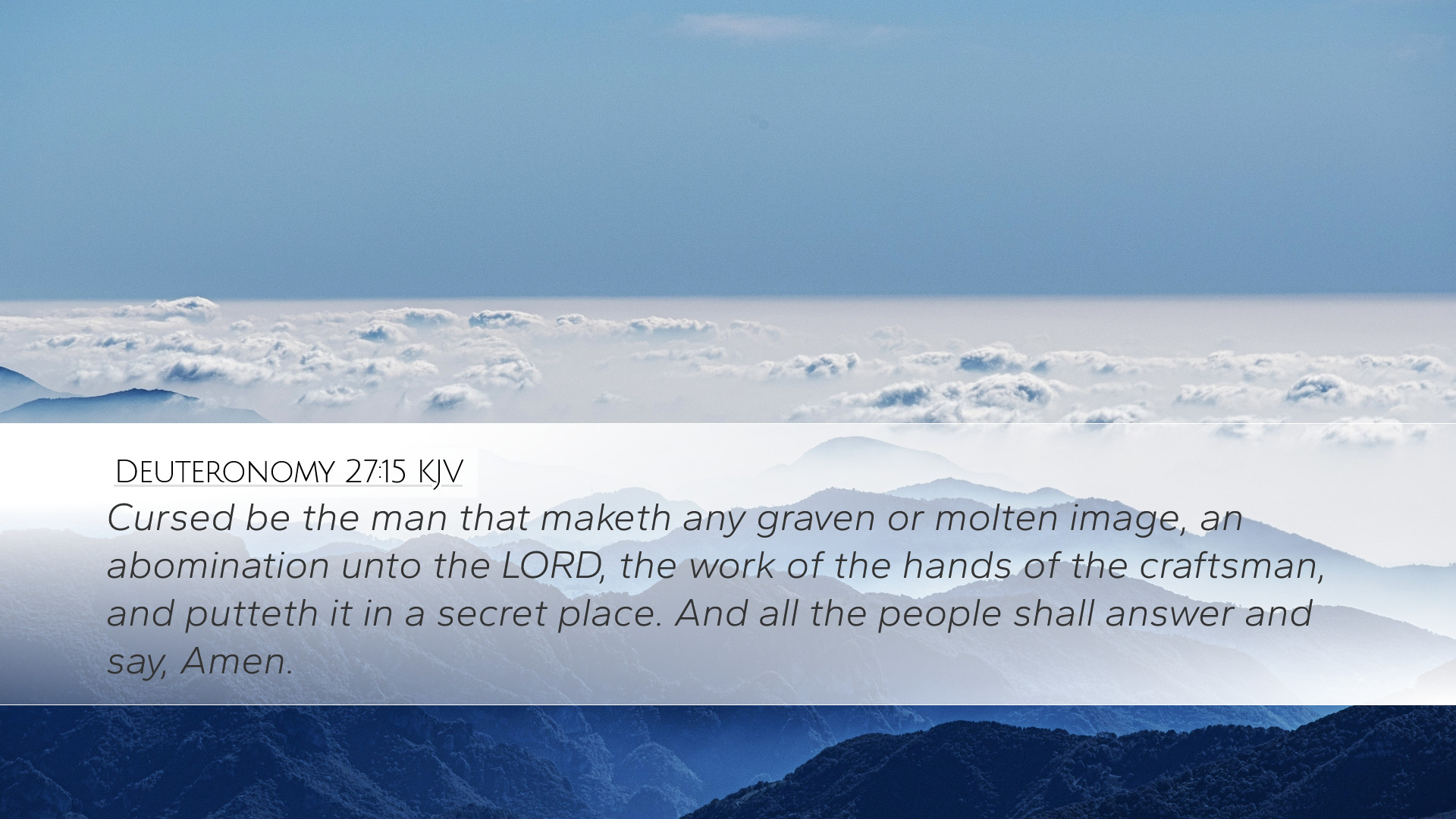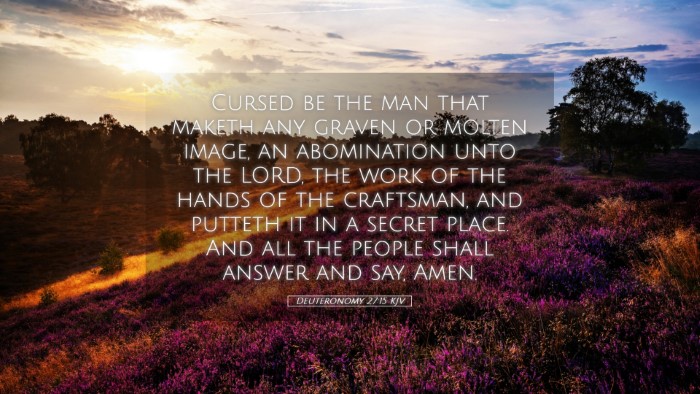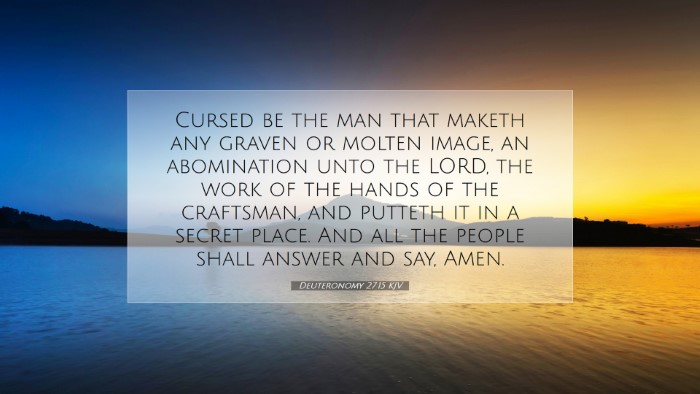Commentary on Deuteronomy 27:15
Verse: "Cursed be the man that maketh any graven or molten image, an abomination unto the LORD, the work of the hands of the craftsman, and putteth it in a secret place. And all the people shall answer and say, Amen."
Introduction
Deuteronomy 27:15 serves as a pivotal verse within the context of the Mosaic Law where the blessings and curses associated with obedience to God are explicitly outlined. This verse emphasizes the prohibition against idolatry, which is crucial for understanding the nature of Israel’s covenant with Yahweh. Here, we will explore insights from various public domain commentaries to unpack the theological, historical, and practical implications of this verse.
Theological Significance
Matthew Henry emphasizes the seriousness with which God regards idolatry. This verse signifies that even secret worship of idols—those made with human hands—brings a curse, indicating that sin, whether public or private, incurs divine judgment. The heart’s inclination toward idolatry can manifest in various forms, revealing humanity's propensity to create gods in our own image.
Idolatry as a Root of Sin
According to Albert Barnes, idolatry is not merely a physical act of worshiping images but represents a deeper rejection of God’s sovereignty. He highlights the term "abomination" used in the verse, indicating that such actions are not only disobedient but detestable in God's sight. Idolatry distorts worship and diverts the believer's heart away from the true God.
Cultural Context
Adam Clarke provides insights into the historical context of the Israelites. During Moses’ time, they were surrounded by polytheistic nations that practiced idolatry, which posed a significant threat to their exclusive allegiance to Yahweh. This commandment serves as a solemn reminder to Israel that their identity is rooted in monotheism, and any deviation from this was to invite curses upon the nation.
Consequences of Idolatry
The phrase “putteth it in a secret place” implies a willful intent to conceal idolatrous practices, showing a deliberate choice to sin. Henry goes on to articulate that these clandestine acts are insidious and highlight the inner workings of the heart; people often seek to hide their transgressions even from themselves.
Corporate Accountability
In concluding the cursive declaration, “And all the people shall answer and say, Amen,” signifies the corporate responsibility of the community. Barnes notes that affirming the curses demonstrates the Israelites’ collective commitment to uphold the law and acknowledge that idolatry impacts the entire community, not just the individual transgressor. This communal aspect of faith is crucial for understanding the dynamics within the covenant community.
Application for Today
The essence of this verse transcends its ancient context, as it serves as a warning against modern forms of idolatry such as materialism, fame, and power. Clarke illustrates that hidden sins can be as devastating to a believer’s life today, warning church leaders and members alike to examine their own hearts for any remnants of idolatrous inclinations.


